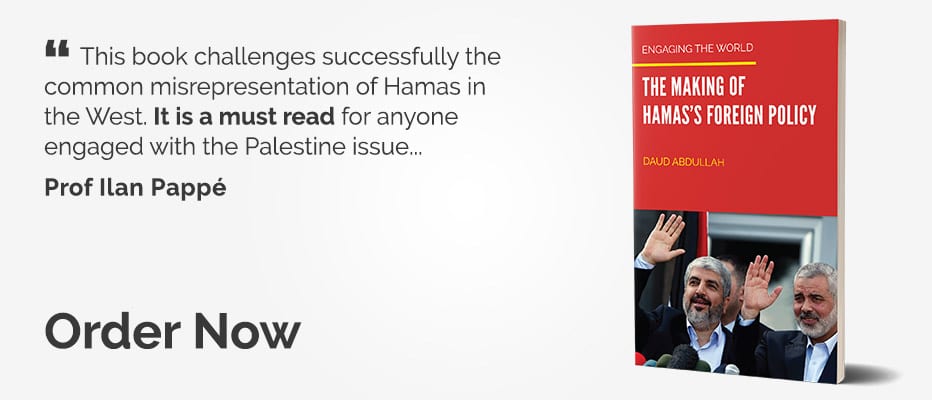With the former parliamentarian and potential presidential candidate, Ahmed Tantawi, calling for reconciliation with the Muslim Brotherhood, the fraught and complex issue is reopened in Egypt following the 3 July 2013 coup. This contentious proposal comes just ahead of the 2024 presidential elections, where incumbent President Abdel Fattah Al-Sisi is seeking a third presidential term extending to 2030. This is happening as the Arab world's most populous nation struggles with a crippling economy.
Many challenging questions arise when discussing reconciliation with a group labeled as "terrorists" by the Egyptian authorities. Thousands of its leaders and members have been arrested and imprisoned since the overthrow of the late President Mohamed Morsi in mid-2013. To what extent can both parties make concessions for comprehensive reconciliation?
Stagnant waters
One might say that Tantawi has thrown a heavy stone into stagnant waters at a sensitive time when national dialogue sessions are taking place, seeking a roadmap and a rescue plan to pull the country out of the current crisis. Egypt is on the verge of collapse after its debts escalated and its local currency collapsed against a severe shortage in the availability of the US dollar.
In a proposal he issued days ago, the former president of the Dignity Party said the Brotherhood could legally return to the political scene by establishing an association instead of the group, so their movements would be governed by law. This proposition might cost Tantawi the support of civil forces.
READ: Who can afford meat in Egypt today?
The current President of the Dignity Party, Mohamed Sami, has described the Brotherhood as a "terrorist" group, while the former president of the Constitution Party, Khaled Dawood, said there is no chance for the Brotherhood to return to politics.
Earlier, former presidential candidate Hamdeen Sabahi stated in televised remarks that recognition of the legitimacy of the president and the 2014 Constitution are fundamental conditions for the Muslim Brotherhood's participation in any political dialogue endorsed by the authorities.
The Brotherhood has been targeted by a security campaign that has affected most of its leaders and thousands of its supporters and has seen several figures lose their lives in prisons due to medical neglect. Hundreds of the group's members were killed in the massacre during the sit-ins at Rabaa Al-Adawiya and Al-Nahda squares on 14 August 2013. The Brotherhood was later declared a "terrorist group" and saw hundreds of its companies, schools and hospitals confiscated while the assets of its senior figures were seized.
![Sisi's Prisons - Cartoon [Sabaaneh/MiddleEastMonitor]](https://i0.wp.com/www.middleeastmonitor.com/wp-content/uploads/2020/05/Untitled-Artwork-1.jpg?resize=500%2C312&quality=85&strip=all&zoom=1&ssl=1)
Egypt Sisi's Prisons – Cartoon [Sabaaneh/MiddleEastMonitor]
An ineffective law
More than a year ago, prominent group leader, Yusuf Nada, announced his acceptance of dialogue with the Egyptian regime, affirming that the Brotherhood's door is open to talks. He stipulated that "injustices be addressed, aggression stopped, and the suffering of imprisoned men and women, as well as their families, end," as stipulated in Article 241 of the current Constitution.
Article 241 stipulates: "The House of Representatives is committed in its first session after the implementation of this Constitution to issue a transitional justice law that ensures the disclosure of truth, accountability, proposing national reconciliation frameworks, and compensating victims, according to international standards." This law has not seen the light of day until now.
According to an anonymous Egyptian political analyst, the Brotherhood's highest aspiration is the release of their detainees and for authorities to stop pursuing them both in security and judicial terms. He told Middle East Monitor that the group recognises its weak position, the shift in regional and international calculations regarding it, in addition to the disunity of its leaders abroad. In return for the Brotherhood's readiness to turn the page on the past, Al-Sisi said in September 2021 that he is ready to accept the thoughts of others, but on the condition that "they respect my path" and "do not target me".
READ: Egypt's terror lists target opposition figures
Challenging concessions
The group will likely face difficult concessions if it reconciles. These may start with its members retiring from political activity and recognising Al-Sisi's legitimacy. It may go on to demands to hand over some of its leaders for prosecution.
Government circles in Egypt fear the potential return of the Brotherhood to the scene, or the opening of any loophole that could allow their integration into society, or pave the way for a revival of the Arab Spring movement. Fearful that those responsible for the massacres may be held accountable.
The official Egyptian stance against reconciliation is reinforced by the group lacking any bargaining chips, in addition to the divisions that have hit its leadership and the blocking of its media platforms by Turkiye amid the normalisation of relations between Ankara and Cairo.
According to Brotherhood leader Mohamed Soudan, Al-Sisi insists on the condition that his legitimacy be recognised, while the group insists that its jailed members be released without condition.
A senior Muslim Brotherhood in Turkey told Middle East Monitor that Al-Sisi has repeatedly refused to open the door to reconciliation with the Brotherhood. He even claimed a few days ago that he had imprisoned thousands of political prisoners to save the nation. Therefore, it is not expected that this regime will reconcile with the Brotherhood.
The reality confirms that reconciliation between the Egyptian regime and the Muslim Brotherhood is difficult and complex and perhaps unattainable, or at least not imminent.
However, the weight of regional mediations, the level of flexibility that the group will show, and the pragmatic approach adopted by both parties are all pillars that may ease the crisis, not by ending it, but by creating a significant breakthrough in the Egyptian political scene.
The views expressed in this article belong to the author and do not necessarily reflect the editorial policy of Middle East Monitor.

![Egyptian President Abdel Fattah Al-Sisi [Milos Miskov/Anadolu Agency]](https://i0.wp.com/www.middleeastmonitor.com/wp-content/uploads/2022/07/AA-20220720-28461718-28461716-EGYPTIAN_PRESIDENT_ABDEL_FATTAH_ALSISI_IN_SERBIA.jpg?resize=1200%2C797&quality=85&strip=all&zoom=1&ssl=1)

